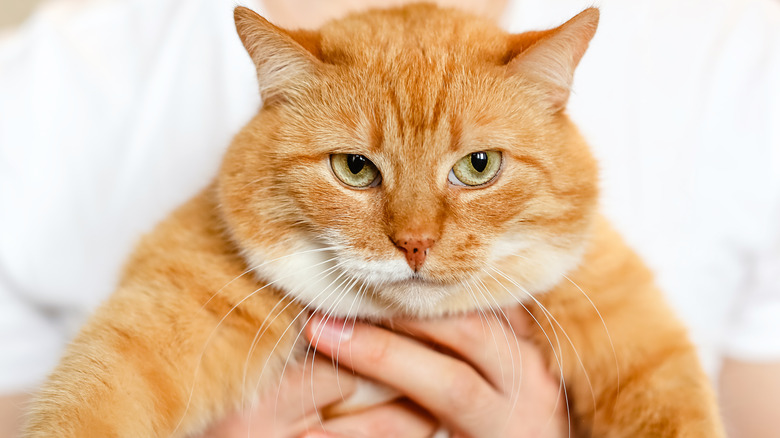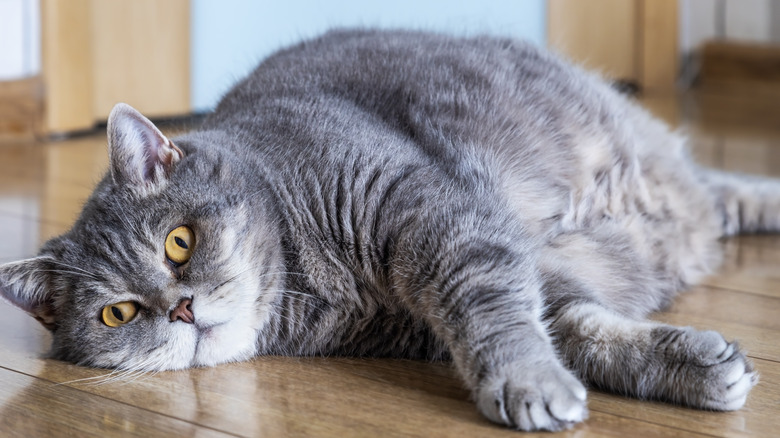Signs Your Cat May Need To Lose Weight
When it comes to owning pets, your rules may vary, depending on the furry friend you've chosen for yourself, especially between cats and dogs. Some of these differences are natural to all animals of a certain class, and some of them are particular to your individual pet. For instance, even though dogs require more attention than cats, per PetPlace, most cats require attention on their own time. Forcing attention on a cat is one of the biggest mistakes first-time cat owners tend to make, as this can distress the feline and possibly lead to health issues (via Two Crazy Cat Ladies). Still, cats show they love you in many ways.
General rules for cat care include good grooming, vaccination, and keeping their space clean. According to Union Lake Pet Services, you should also cat-proof your home, make regular trips to a cat-friendly veterinarian, and give your friendly feline some cat toys and a scratching post. But all of this may not matter much if your cat's diet is not well monitored or regulated.
One of the greatest, and perhaps most obvious, health complications that can result from a disregard of your cat's diet is the feline becoming overweight, which could potentially lead to even scarier health risks, such as lameness, arthritis, liver disease, urinary problems, and, ultimately, a decreased lifespan (via Cherry Hill Animal Hospital).
How to know if your cat needs to lose weight
Your cat's diet requires balance and careful consideration, as cats need specific amounts of nutrients to stay healthy. When it comes to a cat's diet, the idea that more is better is wrong. Many people like to think their cat's weight falls in a normal weight range. However, overweight cats are more common than you'd think. As noted by WebMD, domestic cats should generally weight around 10 pounds. Still, a survey conducted in 2018 by the Association for Pet Obesity Prevention found that 59% of domestic cats in the U.S. were overweight/obese.
Going to the vet can help you figure out if your cat is overweight. However, there are simple tests you can conduct at home, and cat behaviors you can observe, to check if your cat is overweight. According to PetCo, if you cannot see your cat's waistline when you're standing above it, or a "slight upward indentation" from the side, it may be overweight.
Another way to check is to feel the sides of your cat. If you can't feel its ribs without pressing firmly, your cat may be overweight. If your cat's grooming habits aren't as good as they used to be, it could be because overweight cats can't reach their full bodies. If your cat gets easily winded, wheezes often, or becomes less active, it could also be due to weight issues, per Cats on Broadway Hospital.

